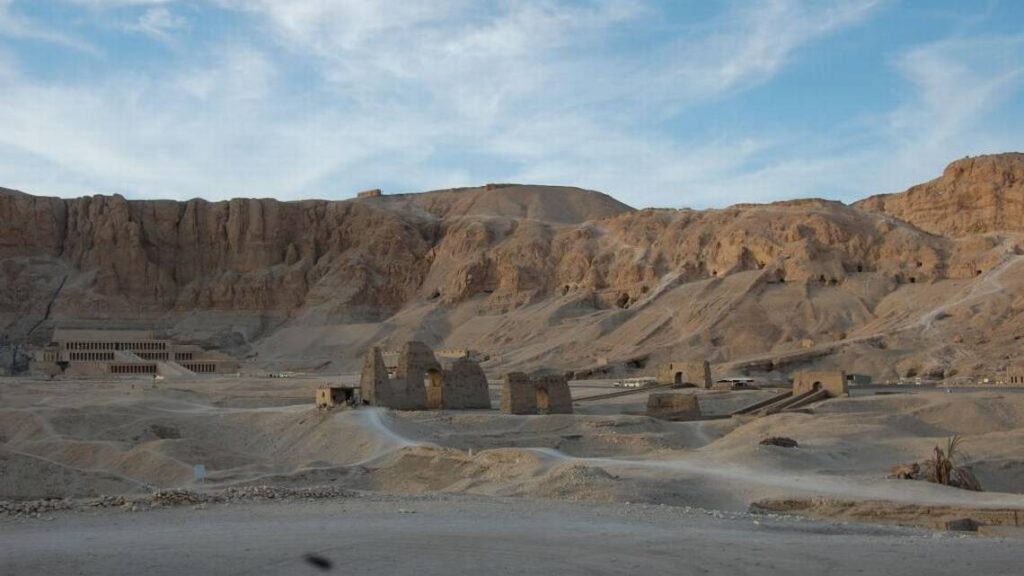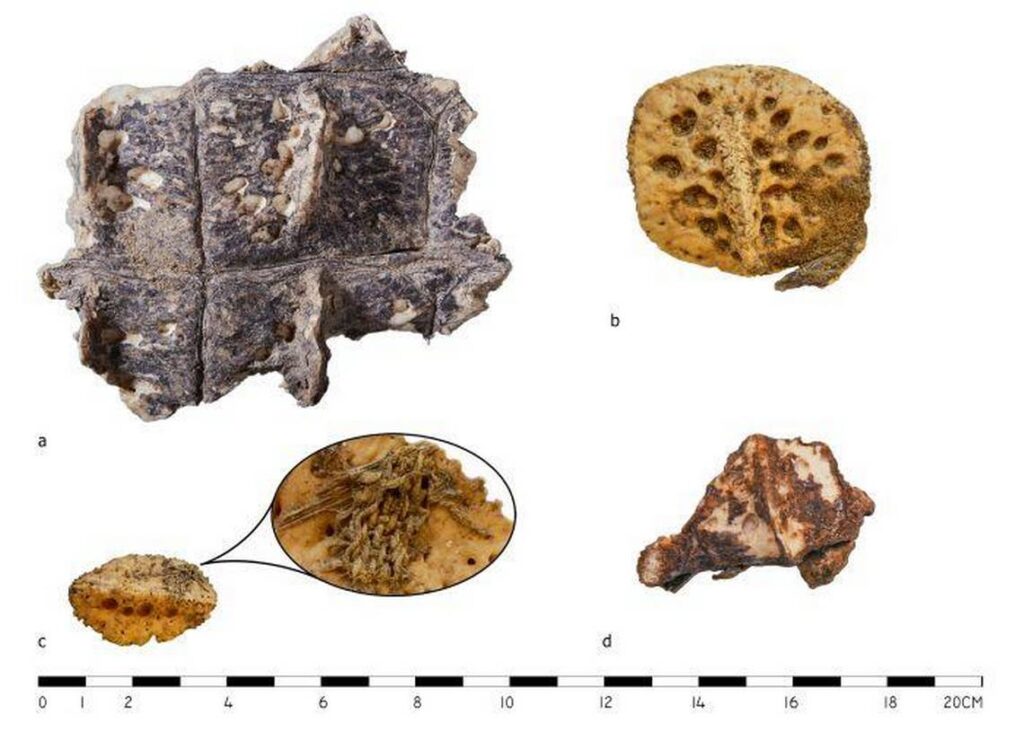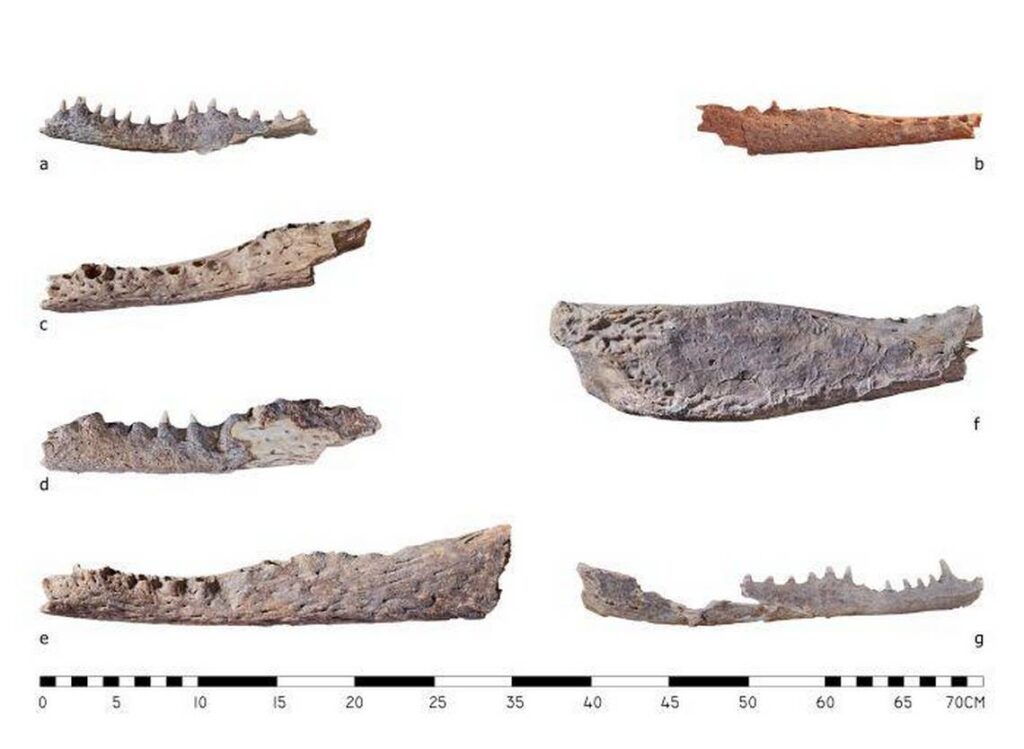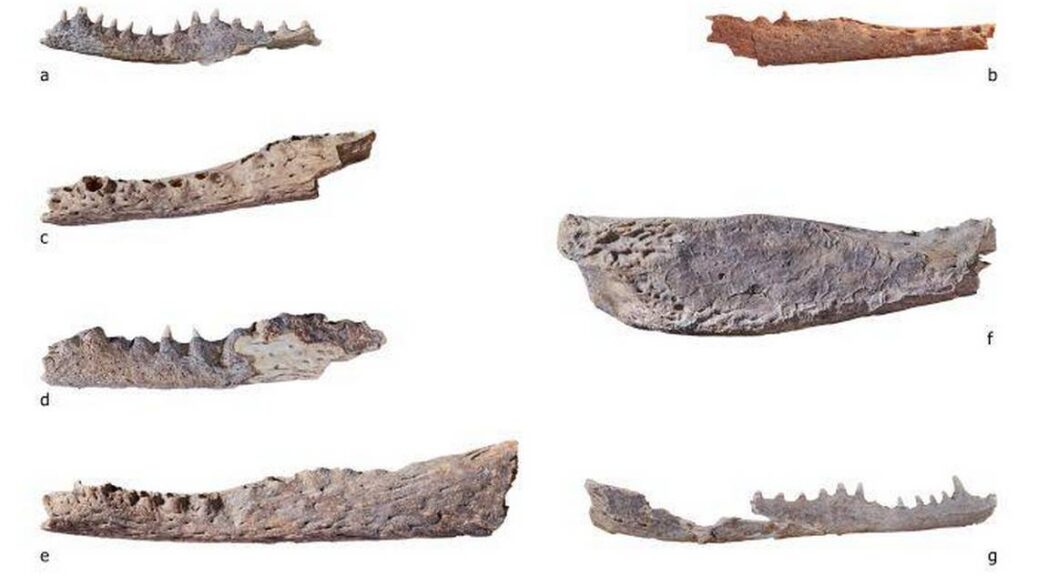Crocodile heads — buried 4,000 years ago — uncovered in tombs in Egypt, photos show

A pair of ancient nobles died thousands of years ago and were buried in nearby tombs in Egypt. Excavations of these graves revealed the first-of-its-kind discovery.
Archaeologists in Luxor excavated two tombs near the temple of Hatshepsut, Science in Poland said in a news release Tuesday, Dec. 20.
One grave belonged to Chancellor Cheti, an important official to the Pharaoh Mentuhotep II, and the other belonged to an anonymous vizier, comparable to the Pharaoh’s Prime Minister.
Inside the 4,000-year-old burial, researchers found nine crocodile heads, the release said. The heads were found wrapped in fabric and discarded in heaps left by earlier researchers.

The skulls came from young and adult crocodiles, archaeologists said. While alive, the crocodiles were anywhere from 6 feet long to 13 feet long.

Although mummified crocodiles have been found in temples, no such crocodiles had been found in ancient Egyptian graves — until now, Patryk Chudzik, head of research at the Center of Mediterranean Archaeology, University of Warsaw told Science in Poland.
These crocodile heads were likely buried to help the deceased on their journey to the afterlife, researchers said.
In tombs with crocodile heads, the soul of the deceased would be protected by the ancient Egyptian god Sobek, a figure commonly depicted as either a crocodile or a man with a crocodile head, Chudzik explained.
Crocodile heads may have been more common in the richest ancient tombs and simply discarded by previous researchers who focused on burial goods such as jewelry, gold, or pottery, experts said.
The temple of Hatshepsut is located in Luxor, about 400 miles south of Cairo.
